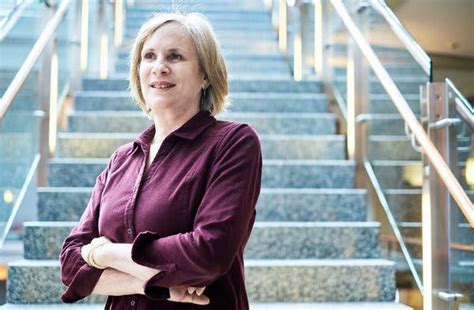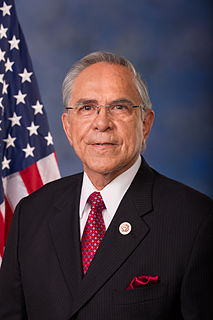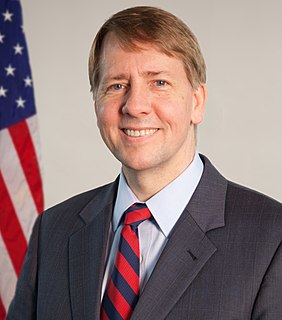A Quote by Elizabeth Warren
The broken consumer credit market had to be repaired by making sure that consumers had the right information and could use it effectively. That meant consolidating the bloated patchwork of ineffective agencies and regulations so that a single agency could act as a voice for consumers.
Related Quotes
If consumers weren't thinking this way, companies would be a lot less responsive. Right now, consumers don't really have a way to get information about where exactly their clothing is coming from - that's a barrier. We have labels on your eggs, "cage-free hens." They need to get something along those lines to allow the consumer to discriminate.
I like to take CEOs into consumers' homes to see the "real world." CEOs have privileged lives with big incomes, lots of help, access to just about anything they wish. The average consumer lives on $53,000 a year and has daily tradeoffs and compromises that must be made. I took a CEO into a trailer park so he could observe first-hand - and understand - how consumers use his product.
Consumers will purchase high quality products even if they are expensive, or in other words, even if there are slightly reasonable discount offers, consumers will not purchase products unless they truly understand and are satisfied with the quality. Also, product appeal must be properly communicated to consumers, but advertisements that are pushed on consumers are gradually losing their effect, and we have to take the approach that encourages consumers to retrieve information at their own will.
If old consumers were assumed to be passive, then new consumers are active. If old consumers were predictable and stayed where you told them, then new consumers are migratory, showing a declining loyalty to networks or media. If old consumers were isolated individuals, then new consumers are more socially connected. If the work of media consumers was once silent and invisible, then new consumers are now noisy and public.
The capitalistic social order, therefore, is an economic democracy in the strictest sense of the word. In the last analysis, all decisions are dependent on the will of the people as consumers. Thus, whenever there is a conflict between the consumers' views and those of the business managers, market pressures assure that the views of the consumers win out eventually.
Please, please, stop referring to yourselves as "consumers." OK? Consumers are different than citizens. Consumers do not have obligations, responsibilities and duties to their fellow human beings. And as long as you're using that word "consumer" in the public discussion, you will be degrading the quality of the discussion we're having. And we're going to continue being clueless going into this very difficult future that we face
































